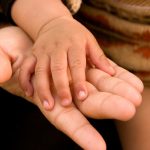Dr Cara Booker’s blog piece for The Conversation examines the health risks to children and young teens of increasing amounts of time on social media
Blog
ISER researchers discuss their work in these blog posts.

Collecting data with new technologies – valuable for research, or are we just collecting data for the sake of it?
In a blog for CLOSER, Annette Jäckle cautions that before we rush headlong into adopting new technologies to help with survey data collection we need to recognise and address the new challenges they bring with them

Do unpaid interns benefit from the experience? Or who is hurt the least?
Angus Holford describes new research on the pay back from working for nothing

Understanding Brexit
- Nicole Martin
Dr Nicole Martin describes research projects planned using unique new data on attitudes to the UK leaving the European Union

Impactful Social Science – How Social Science is helping to tackle global grand challenges
- Shamit Saggar
Shamit Saggar, Professor of Political Science and Public Policy at ISER spoke at the ESRC’s launch of the Festival of Social Science at the Royal Society on 7 November. Hosted by Springer Nature partnered with the Economic and Social Research Council, Professor Saggar joined Laurie Taylor of Radio 4’s Thinking Allowed, Professor Lord Nicholas Stern, Chair of the ESRC Centre for Climate Change Economics and Policy and the Grantham Research Institute on Climate Change and the Environment, and Professor Felicity Callard, Director of the Birkbeck Institute for Social Research.

Sticking with the job – the benefits of in-work credits
- Mike Brewer
In new work funded by the Nuffield Foundation, Mike Brewer, Professor of Economics at ISER and Director of the ESRC- funded Research Centre on Micro-Social Change, together with Jonathan Cribb from the Institute for Fiscal Studies, come to a positive conclusion on the advantages of time-limited in-work benefits

Why mixed modes are here to stay
In a blog for CLOSER, Annette Jäckle explores the benefits of mixed mode data collection for longitudinal studies in addressing the triple challenges of falling response rates, increasing fieldwork costs, and a squeeze on the budgets available for long-term surveys.

How female foeticide has influenced fertility and parental investments in girls
Professor Sonia Bhalotra investigates how the introduction of ultrasound technology in India has affected how many girls are born there, and their subsequent quality of life

Job-related learning: who benefits, and how much?
Dr Alita Nandi draws out the findings from the What Works Wellbeing’s latest analysis on the wellbeing benefits of job-related training

How maternal depression affects mothers and children
- Sonia Bhalotra
Professor Sonia Bhalotra investigates the impact of low-cost community-based intervention on maternal depression

The effect of policy reforms on wellbeing
Dr H. Xavier Jara with Professor Erik Schokkaert from the University of Leuven investigates the importance of taking into consideration a broader range of wellbeing indicators to assess the potential effect of policy reforms

What makes children happy?
- Gundi Knies
Dr Gundi Knies looks at the impact of family incomes in a new blog for What Works Wellbeing

